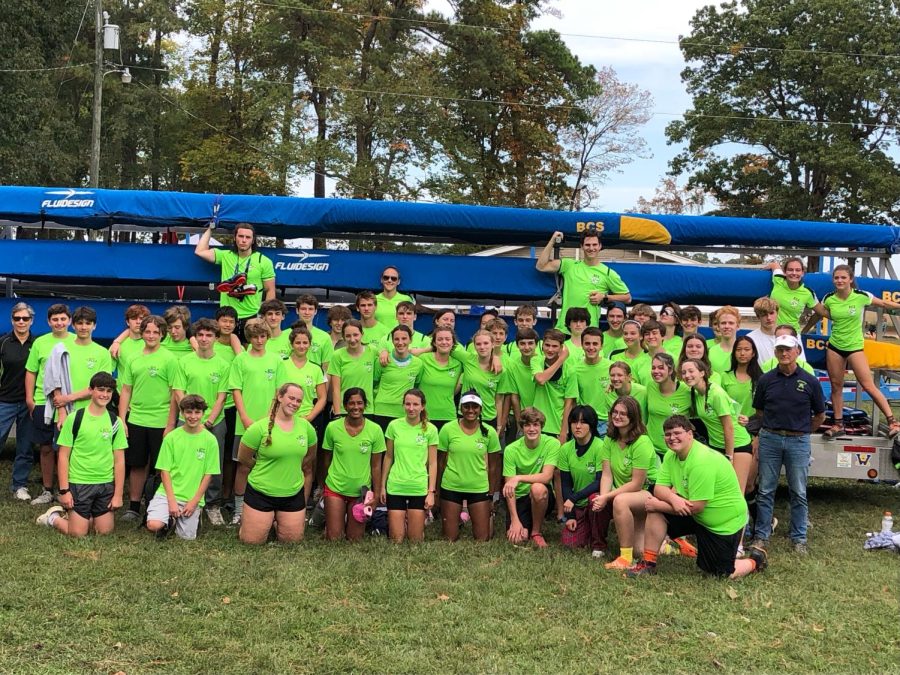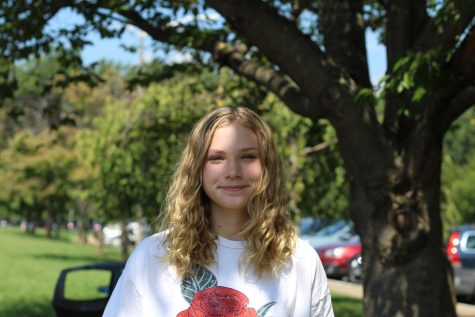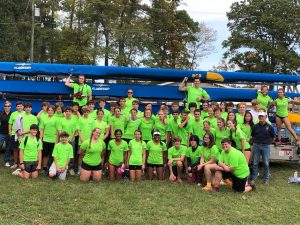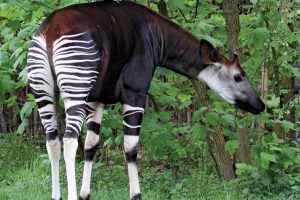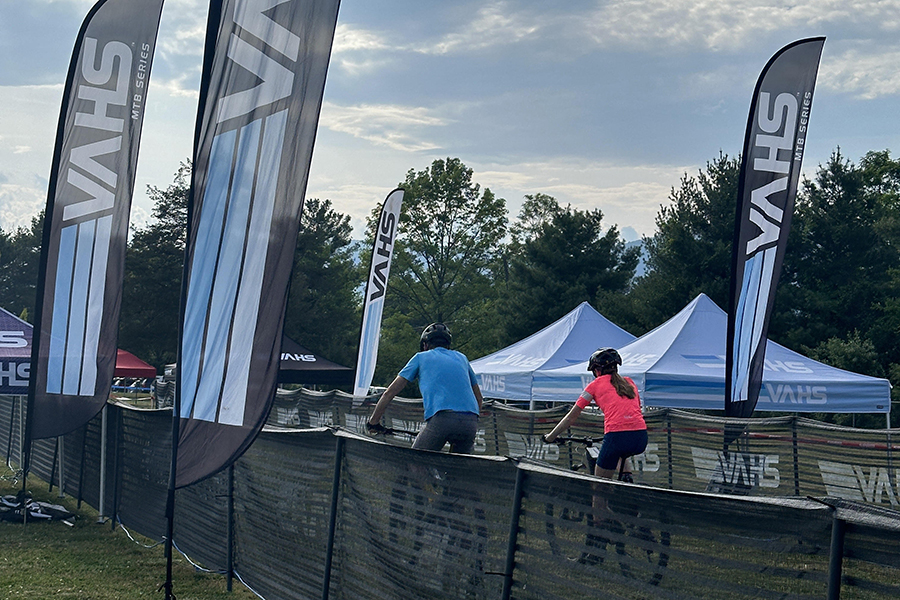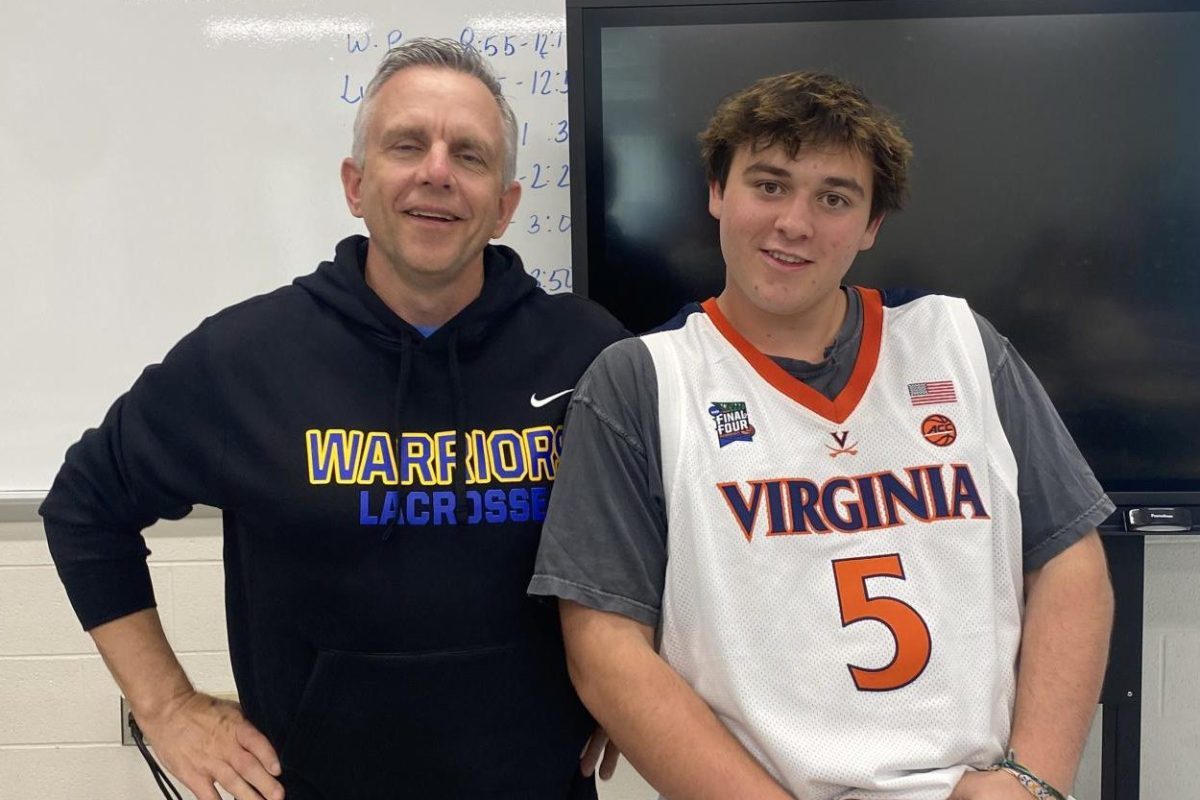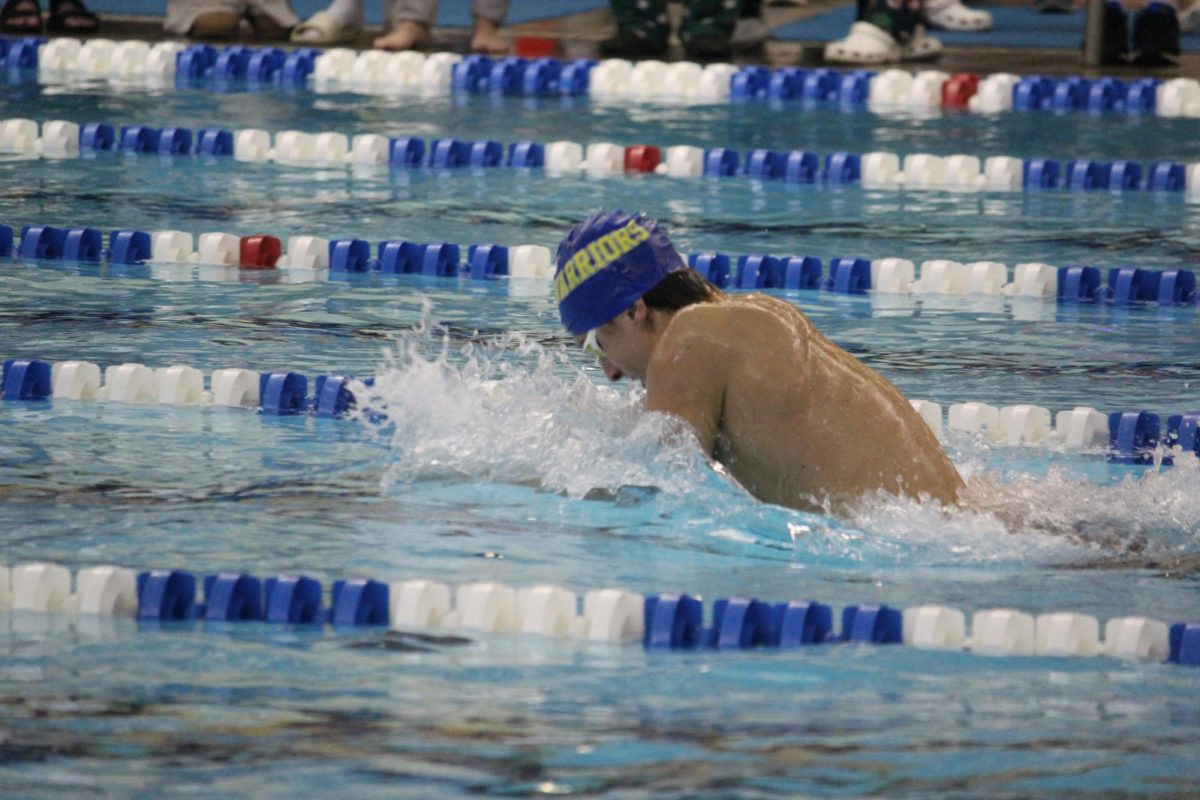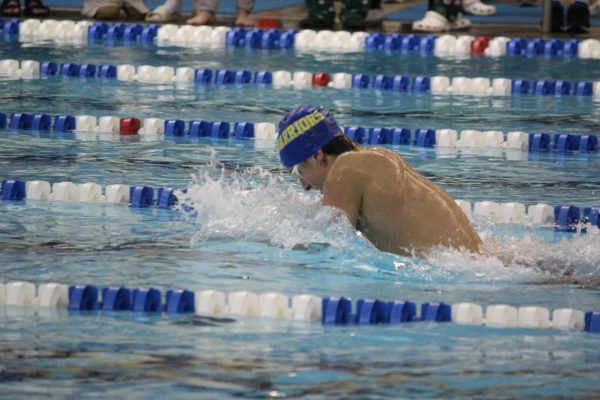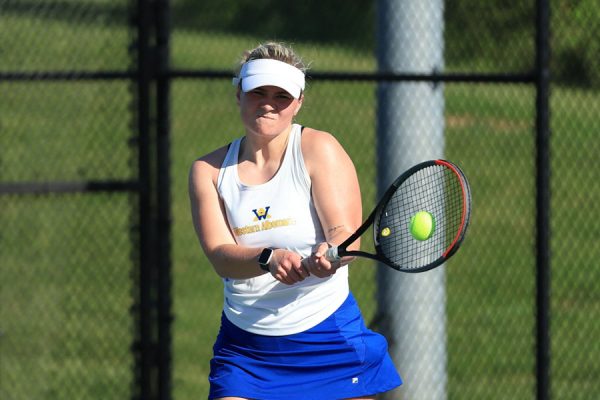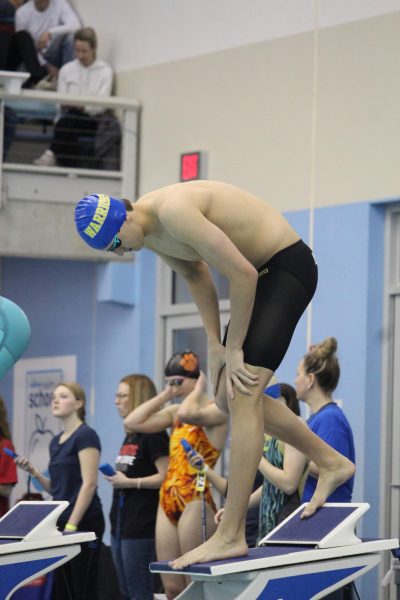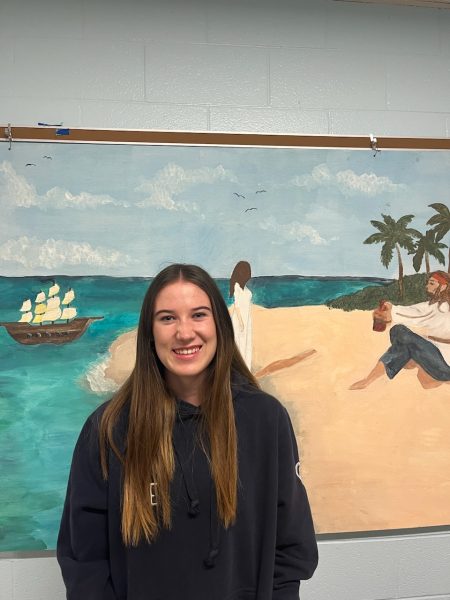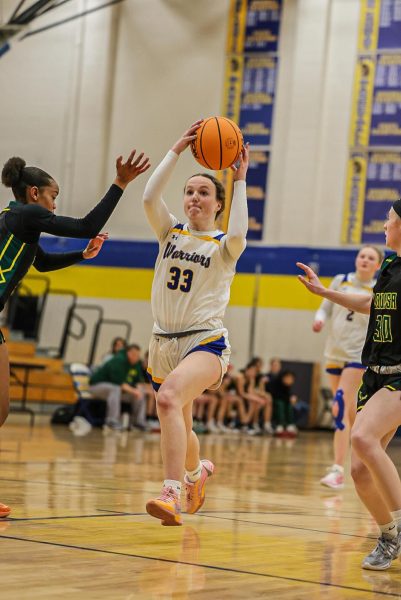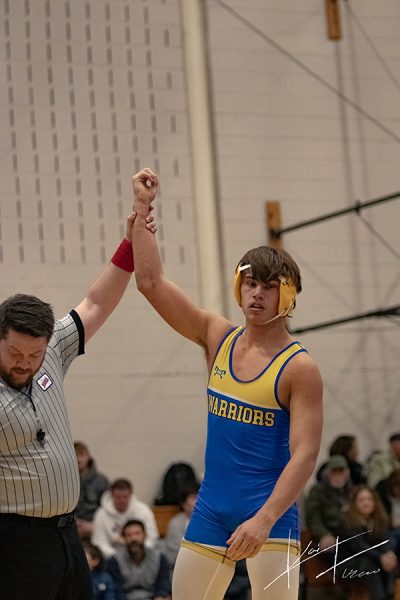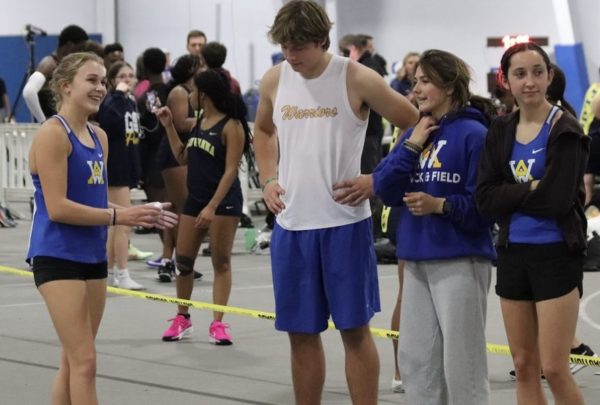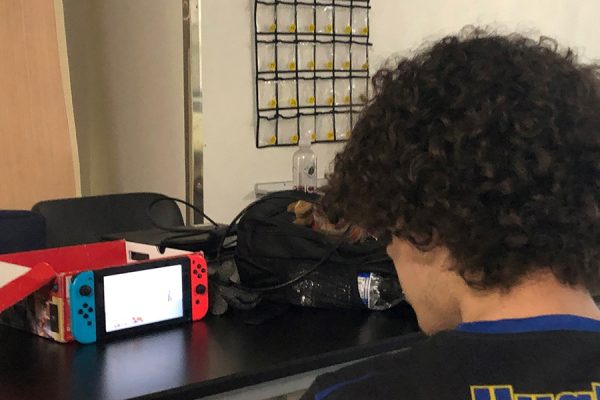Rowers Return from Crew Trip to Florida
Rowers escape the winter cold to row on Lake Beresford.
Credit: Christina Young
Western’s crew team poses together after a regatta in October.
February 22, 2023
Craig Redinger, coach of the crew team, puts intense thought into his athletes and their improvement, including providing a trip to Florida. The camp, which is held annually in the winter to avoid the cold, focuses on teaching young rowers good form. Rowers, who range from freshman to seniors, enjoy the trip.
According to Redinger, the trip allows athletes to row outdoors during the colder months.
He finds that the camp “fosters team spirit,” and “reinvigorates rowers.” Redinger feels the camp “provides a warm, unique location ideal for sculling, and a level of coaching that is unrivaled for perfecting sculling skills.” Sculling, a type of rowing that is coached to the rowers at beaver creek, is rowing with two arms.
The camp, located on Lake Beresford in Deland, Florida, is known for its beaches, natural springs, theme parks, and much more. With the lake’s dimensions being 4 kilometers by 1 kilometer, Coach Craig finds the lake, four kilometers by one kilometer, ideal for racing, stating it has an added benefit of “connecting to the St. John’s River system, [which allows] our rowers to make continuous rows of 20,000 meters or more.”
Coaches at the camp are former US National team rowers and have decades of impressive coaching background for scullers of every age. One coach, Jim Dietz, is an Olympic rower who holds a world record in rowing and has trained many division I coaches. Redinger mentioned that, unlike the local practices, the camp allows rowers to train up to three sessions per day.
For Redinger, the focus of the trip is improving the technique of the rowers. He expressed that “sculling is a complex sport that requires the athlete to master subtleties of movement.” With a substantial amount of time to go over those subtleties of movement on the water, the rowers had an opportunity for “success as a sculler.”
Every day during the camp the rowers are on the water at 8:30, 11:30, and 3:30. After sessions, the rowers eat breakfast and lunch while reviewing a video of each person’s technique from the previous row. The rowers will assemble again in the evening for dinner.
Rower’s enthusiasm for the sport will significantly enhance their technique. Thomas Lambert, a freshman, enjoyed the trip and thought the coaching style was interesting in comparison to that at practice. To Lambert, the difference in coaching was that it focused on “individual athletes, boats, and groups as a whole when needed.” With rowing up to three times a day, you’d suspect athletes would be tired or overworked, but Lambert said that “the training load was heavy but overall it wasn’t too difficult” and that he would get sore from it. Another rower, Stewart Kauffman says it was her favorite trip that the team has done by far, and it’s a great team bonding opportunity. Kauffman said she loves Lake Beresford because she likes to see wildlife like alligators and manatees. Lambert said he’ll definitely be going again because its a “superb rowing experience with excellent coaching.” The trip will take place in December next year.



